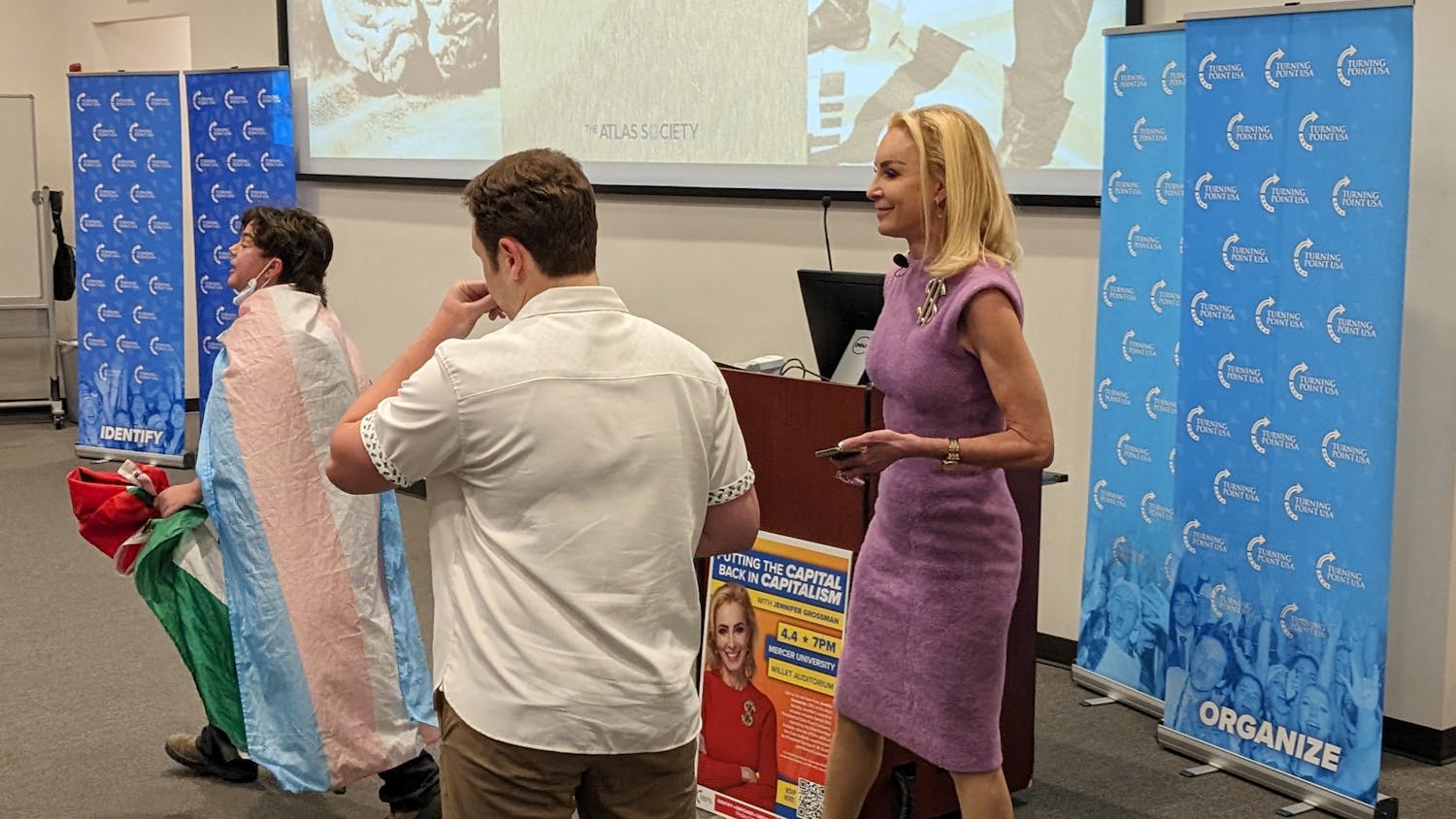| TRIGGER WARNING This article or section, or pages it links to, contains information about sexual assault and/or violence which may be triggering to survivors. |
Two victims of sexual assault on Mercer University’s campus have raised concerns over the way their cases were handled.
One current Mercer University senior was sexually assaulted in a campus fraternity house during her freshman year by a student she was seeing casually at the time. After a party one night, her attacker locked the door to his bedroom and grabbed her from behind.
“He weighed probably twice as much as I did...I tried to get him off of me and couldn't... I started screaming begging for him to stop. And he whispered to me, ‘Shut up you like it’ and I just froze. I didn't know what to do. I just sat there, and I stopped struggling,” she said.
After the attack, S.* locked herself in the bathroom and waited until her attacker left. She said she knew her experience wasn’t consensual immediately afterwards, but wasn’t exactly sure what had happened until a speaker came to talk to her sorority about sexual assault.
Afterward, S. decided to file a report with Title IX, the office that deals with sexual violence on campus. The process took several weeks, from filling out her personal statement to being interviewed.
[pullquote speaker="S." photo="" align="left" background="off" border="none" shadow="off"]It's a process that very easily can and will re-traumatize you because not only do you have to sit down and you have to write out your story, but you also go and interview about it."[/pullquote]
“It's a process that very easily can and will re-traumatize you because not only do you have to sit down and you have to write out your story, but you also go and interview about it,” she said.
S. said she found some of the questions that Mercer Police asked her during her interview to be inappropriate or upsetting.
In one instance, S. said investigators asked her if she thought the assault broke her hymen, considering she was a virgin at the time of the assault.
“This is not a routine question because this is not something that would be relevant to an investigation,” Title IX Coordinator Melissa Graham said in an email.
After the investigation, S. was given a report on the evidence investigators found.
“(The report) said that something happened but that they weren’t sure of the nature of what happened. It was so discouraging. I figured why even go through it. So there was an informal resolution,” she said.
S. decided to handle the assault informally. The informal solution was a no-contact order between S. and her attacker. Shortly after the matter was settled, however, B.* began showing up around S.
“(The no-contact order) didn’t stop him from being around me. He found a way. He would park behind my house...When he would see me on campus, he would follow me,” she said.
[related title="Related Stories" stories="24084,23782,19425,19268" align="right" background="off" border="none" shadow="off"]
When she went to the office of student affairs about the issue, she was told there was little they could do, since B. hadn’t actually tried to contact her.
She said Dean of Students Doug Pearson eventually altered the no-contact order to prevent B from parking behind her house, but even that didn’t stop him from finding a way to be around S.
S. said that the administration handled her case completely “by the book policywise” despite the fact that B. continued to harass her.
“You can follow the rules and do everything perfectly, but at the end of the day, someone is going to feel like they got screwed over in this whole process,” she said.
C*, a current junior, was also sexually assaulted her freshman year. Unlike S., C. decided to go through the judicial process and participate in an official hearing after filing her report.
“It was the night of Bearstock, and I was going to a party at (a fraternity’s) house,” she said. “I drank too much. One of their brothers took me back to his Loft and ended up raping me there.”
Horrified, C. said that she wrote down everything after the assault happened. A few days later, she met with Graham.
“I had to write up a statement talking about what happened, so I basically just recounted the whole night,” she said. “I had to provide a list of witnesses and probably gave them like 10 different witnesses that I could remember from the night.”
C. said she made one thing clear during the process: She wanted to leave the fraternity out of it.
“I wanted it to be a one-on-one case, not me versus the fraternity,” she said.
After her report was compiled, C. was given an allotted amount of time to read it. She said she did not like that she was unable to keep the report.
Graham cited a federal privacy law as the reason the university does not allow victims to have a copy of their Title IX report.
C. said that she was told the university would inform her of any updates in the case, and that she was the No. 1 priority. The fraternity’s house was shut down in April 2016.
“I wasn’t informed that the (fraternity’s) house would get shut down,” she said.
Mercer said in a statement to The Telegraph that the sanctions were placed on the fraternity after officials had “received information that allege(d) serious violations” of the Student Code of Conduct. It is unclear if the assault was a direct cause of the sanctions.
“I feel like they didn't make that clear enough to people,” C. said. “People thought that it was because of the sexual assault incident. I heard rumors that just weren’t true.”
C. said she felt that many of the fraternity’s members were angry with her for reporting the incident, but she never regretted it.
Her attacker was disciplined, and a no-contact order was put in place. C. said he was told not to return to Mercer’s campus and his diploma was sealed and inaccessible. C. said she does not know what happened to him afterward.
“Coming into college, I never really thought it would be a possibility that this could happen to me,” C. said. “I think that Mercer does do things to bring awareness to (sexual assault), but I think a lot of the students take it as a joke. It’s not a joke at all.”
*Names in this piece have been changed in order to protect the identities of those involved.





